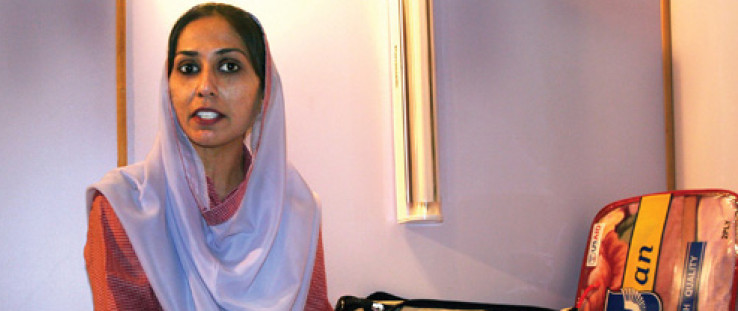 Nazia Bibi displays USAID-supplied equipment to community midwives in Pakistan at a midwife graduation event.
Zack Taylor/USAID
Nazia Bibi displays USAID-supplied equipment to community midwives in Pakistan at a midwife graduation event.
Zack Taylor/USAID
 Nazia Bibi displays USAID-supplied equipment to community midwives in Pakistan at a midwife graduation event.
Zack Taylor/USAID
Nazia Bibi displays USAID-supplied equipment to community midwives in Pakistan at a midwife graduation event.
Zack Taylor/USAID
RAHIM, Pakistan—Nazia Bibi was enjoying a wedding reception in her village when she heard a fellow guest cry out in pain. She looked across the yard to see a very pregnant woman in obvious discomfort.
"The baby is coming!" the woman shrieked. "Take me home."
For Bibi, 25, this was her big moment. "No I won't take you home," she told her firmly. "I am a trained community midwife. You are coming to my house." She led the woman into her modest home and put her on a maternity bed in the corner hidden by a stand-up curtain. Neatly laid out on a table next to the bed were a stethoscope, a new razor blade, a scale, and various instruments associated with childbirth.
Several hours later, there were cries of a healthy boy, delivered in the birthing suite set up in the midwife's family home only five days earlier. The mother, looking down at the gurgling infant, wept.
Bibi had recently graduated as a community midwife from the School of Nursing Holy Family Hospital in Rawalpindi, a city of 3 million situated south of the capital, Islamabad. Her village of Rahim on the outskirts of the city previously had no available skilled birth attendant.
She is among more than 2,200 young women across Pakistan who have completed 18 months of training in midwifery, and have been equipped with close to $1,000 worth of equipment and supplies to ensure safe deliveries.
PAIMAN helped build a trained cadre of health professionals who will continue to provide services to mothers and newborns long into the future. The project trained:
11,000 female health workers in communication skills and group counseling
6,500 female health workers in community-level integrated management of neonatal and childhood illnesses
2,282 certified community midwives in full 18-month trainings and refresher trainings
5,262 health facility staff in maternal and newborn health skills
569 private providers in maternal and newborn health skills
1,014 health managers in basic financial, logistics, and supervisory practices, and
5,953 health staff in health information systems and reporting
Source: USAID
The training and equipment allowed me to establish the midwife home has strengthened the belief and trust of the community in me," Bibi said. "Now they recognize me as a skilled birth attendant. Pregnant women seek me out."
The training was made possible through a USAID project, Pakistan Initiative for Mothers and Newborns, or PAIMAN. For the last six years, PAIMAN has strengthened Pakistan's health system by helping communities improve delivery of health-care services for more than 5.7 million mothers and newborns.
"We have trained a whole new cadre of community midwives, which in a few years' time will bring huge changes," said Dr. Nabeela Ali, PAIMAN's director. "We're not here to take the place of government services, but to build on existing systems according to their capacity. Flexibility is the name of the game."
Since its inception, the $92 million project has reached more that 70 percent of the population through a number of additional outreach efforts.
Working with nearly 100 community-based NGOs, PAIMAN helped strengthen management skills and improve the reach of government health services personnel in remote communities of Pakistan. Trainings enrolled 120 district health managers.
In the rugged northern part of Pakistan, the project supplied the government with 76 specially equipped, four-wheel drive ambulances to transport women experiencing complications in childbirth to larger regional health centers.
A media campaign to promote newborn and maternal health included 36 hours of television programming, video-on-wheels, and puppet shows in rural districts. A key part of PAIMAN was its connection with more than 330 ulama, or religious scholars, who are tremendously influential in their respective communities, and who embraced the project's messages wholeheartedly.
The results speak for themselves. By the end of the project in January, the rate of skilled birth attendance jumped to 52 percent from a national average of 39 percent, and the number of pregnant women who had at least three antenatal visits increased by 29 percent.
A survey found that 97 percent of families now believe pre-natal checkups are necessary in a country where some conservative beliefs hold that childbearing is a natural process not requiring medical attention. The rate of post-natal visits also rose 33 percent.
Infrastructure was another key element of the project—more than 100 community health facilities were upgraded and supplied, as well as 57 training centers and a nursing school dormitory. At these facilities, the project installed features such Oral Rehydration Corners and Well Baby Clinics.
"The PAIMAN experience was critical to our delivery of maternal and child health services in a coordinated manner," said Khushnood Akhtar Lashari, Pakistan's secretary of health. "We are better equipped to continue to help safeguard the health of the mothers and children of Pakistan."
The foundation PAIMAN has developed will continue to serve women, their families, and health-care providers long after the project ends.
"That was my first baby I delivered myself," Nazia said, recalling the eventful wedding reception. "And I am sure it won't be my last."








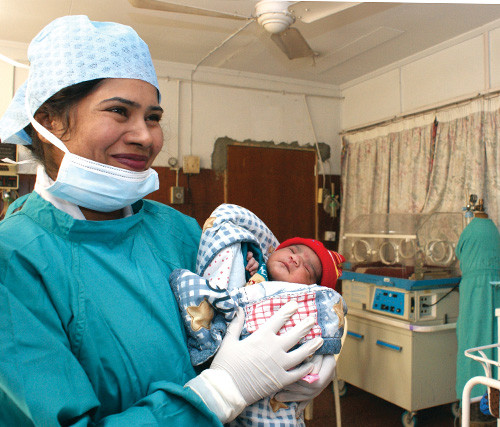
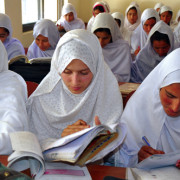
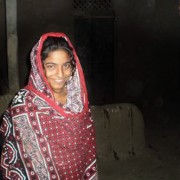
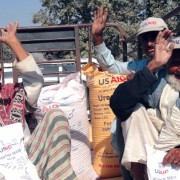
Comment
Make a general inquiry or suggest an improvement.